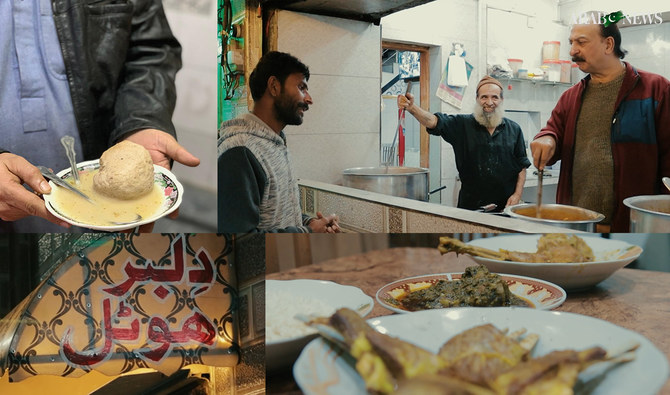RAWALPINDI: Nestled in a labyrinth of narrow streets, an eatery called Dilbar Hotel has a unique selling point: it’s probably the only place in the twin cities of Rawalpindi and Islamabad, possibly even across Pakistan, where one can enjoy food from the Himalayan valley of Kashmir in its true richness and abundance.
The establishment began as a humble tea café in Rawalpindi following the creation of Pakistan after the end of British colonial rule in 1947. It has since evolved into a renowned restaurant serving authentic Kashmiri cuisine to a clientele that includes locals, food enthusiasts and politicians.
The owners, Malik Jamal and his brother, migrated to Pakistan during partition from Kupwara in what is present-day Indian-administered Kashmir, and launched the tea café to provide a “social space” to the Kashmiri migrant community that had settled in Rawalpindi, according to Jamal’s son, Malik Aslam Pervez, who now runs the restaurant.
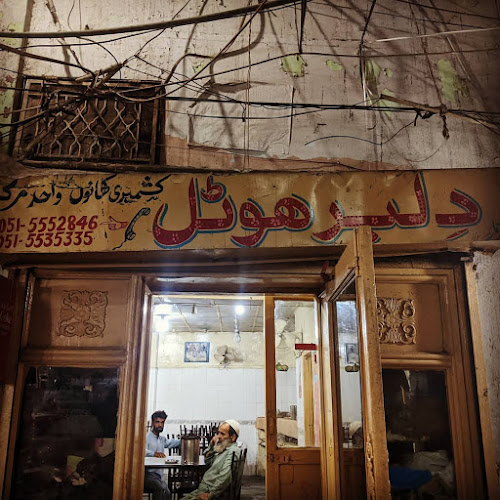
An undated file photo of Dilbar hotel in Rawalpindi, Pakistan. (Photo courtesy: Top-rated/website)
By 1950, the tiny café was so popular among the migrant community as well as local residents of the garrison city that the owners decided to diversify and add some famous Kashmiri main dishes to their menu. That’s when Dilbar Hotel became what it is today, a bastion of Kashmiri food in Rawalpindi and Islamabad, serving up, among other delicacies, ‘rogan josh,’ a lamb curry with a heady combination of intense spices in a creamy tomato sauce, ‘harissa,’ a mutton curry and an authentic winter dish from Kashmir, and ‘gushtaba,’ meatballs cooked in a creamy, tangy, almost soupy, yoghurt gravy.
Kashmir, a Muslim-majority Himalayan region, has been divided between Pakistan and India since 1947, with both claiming it in full but ruling it in part. The unique cuisine of the region, however, is found in both nations.
“My father migrated from Kupwara, and the dishes we serve are the same recipes introduced here since 1950,” 61-year-old Pervez told Arab News at Dilbar Hotel in Raja Bazar near the shrine of the patron saint of Rawalpindi, Shah Chan Charagh.
“We have preserved the heritage of Kashmir through food, maintaining the authenticity of recipes, taste, and spices for over 75 years.”
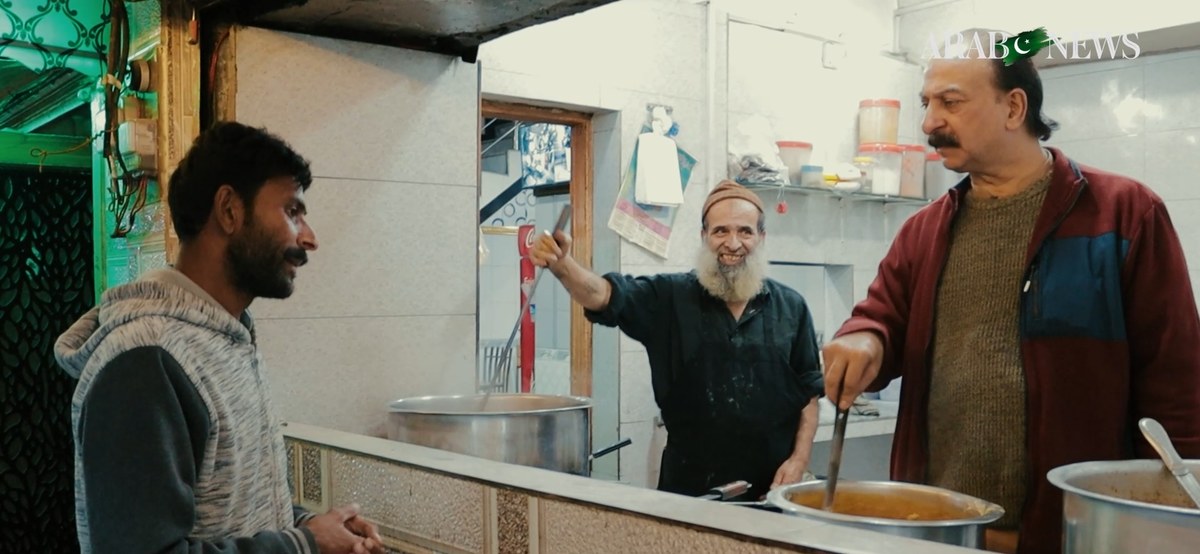
Malik Aslam Pervez (right), owner of Dilbar Hotel interacts with customers while preparing food in his kitchen in Rawalpindi, Pakistan on December 5, 2023. (AN Photo)
Asked about the secret behind the taste of the traditional Kashmiri food served at the restaurant, Pervez said he had learnt every single recipe from his father as a young boy, and each dish had been “authentically” preserved as it was passed down through the generations.
“I used to sit with my father [at the hotel], I was almost 12 when I started sitting with him here,” he said.
“These recipes, the taste, spices, all of them are preserved in our family, our hearts. And they are the same for the last 75-76 years. We have not made any changes to them.”
All the dishes, Pervez said, were prepared using traditional methods and without adding packaged spices or processed food items.
Karamat Hussain, a loyal customer, attested to the authentic taste and said he came to the restaurant at least once a week.
“The most special thing here is their yakhni and gushtaba, which they prepare quite well. Everyone comes here for that,” he said, referring to a broth and traditional Kashmiri meatballs, respectively.
Dilbar Hotel also counts many prominent political figures among its regulars.
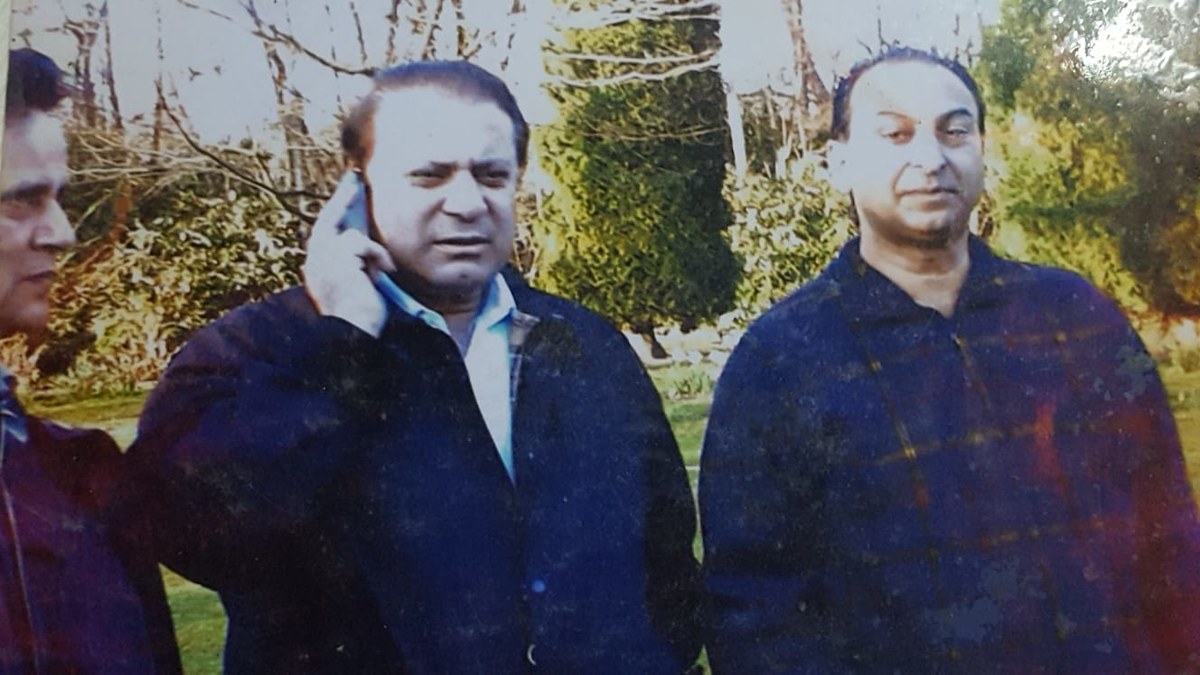
In this file photo, three-time ex-Prime Minister of Pakistan, Mian Nawaz Sharif (left) is seen standing with Malik Aslam Pervez, owner of Dilbar Hotel. (Photo courtesy: Malik Aslam)
“Sheikh Rasheed [prominent Pakistani politician from Rawalpindi] has spent his childhood here, he is very fond of our cuisine. Then [former prime minister] Shahid Khaqan Abbasi, he is also fond of our food,” Pervez said.
“[Three-time ex-PM] Mian Nawaz Sharif has also eaten here, [his late wife] Begum Kalsoom has also visited us.”
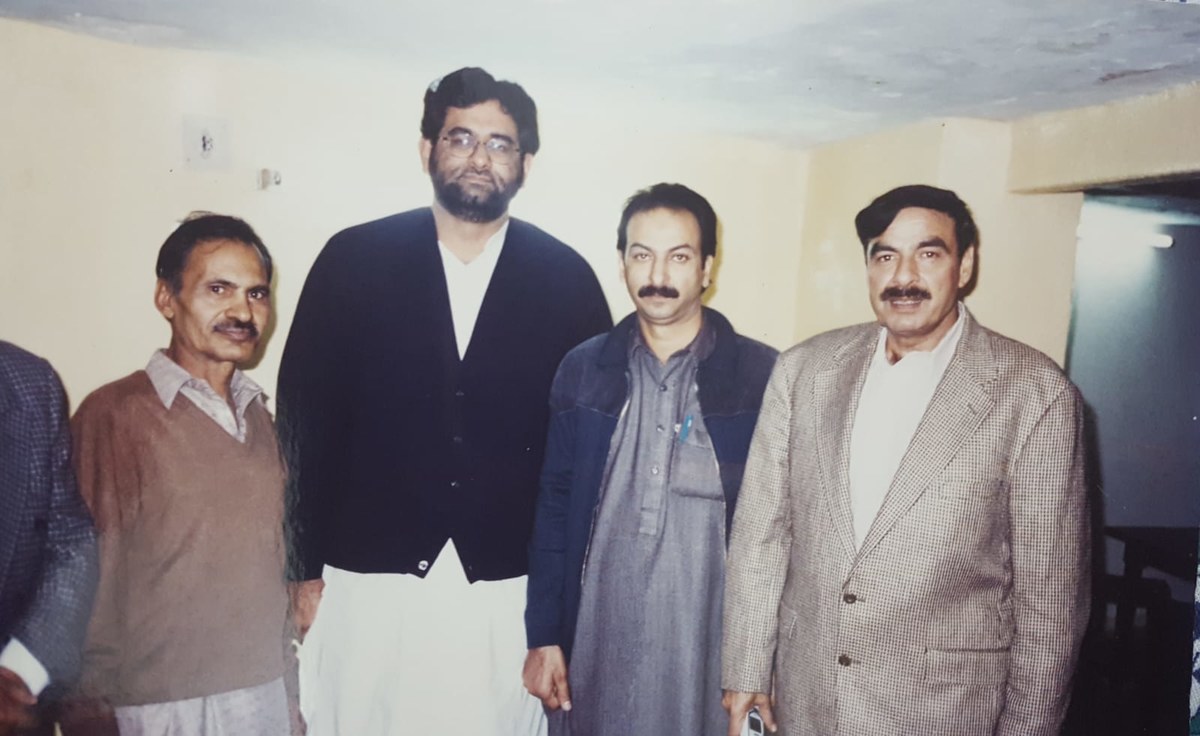
In this undated file photo, Sheikh Rasheed (right), a prominent Pakistani politician from Rawalpindi, Malik Aslam (2nd right) owner Dilbar Hotel and Shahid Khaqaan Abbasi (center), former Pakistani prime minister, are seen posing for a photo at the Dilbar Hotel in Rawalpindi, Pakistan. (Photo courtesy: Malik Aslam)
Over the decades, customers say Dilbar Hotel has become an “indispensable part” of Rawalpindi’s culinary landscape, weaving together the flavors of Kashmir and the stories of its past generations.
Waseer Ali Qazi, a retired government official, recalled when he first visited the establishment in 1964.
“People who had seen [pre-1947] Kashmir, who knew its cuisine... all those people never went anywhere else, they would come straight to chacha [uncle],” Qazi said, referring to Pervez’s father, the founder of Dilbar.
“The tradition, authenticity and the taste that we find here, you don’t find it in the modern cuisine of today. The food offered here is not available anywhere else in Pakistan, except Kashmir.”


